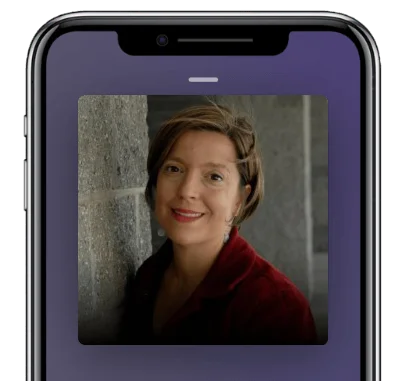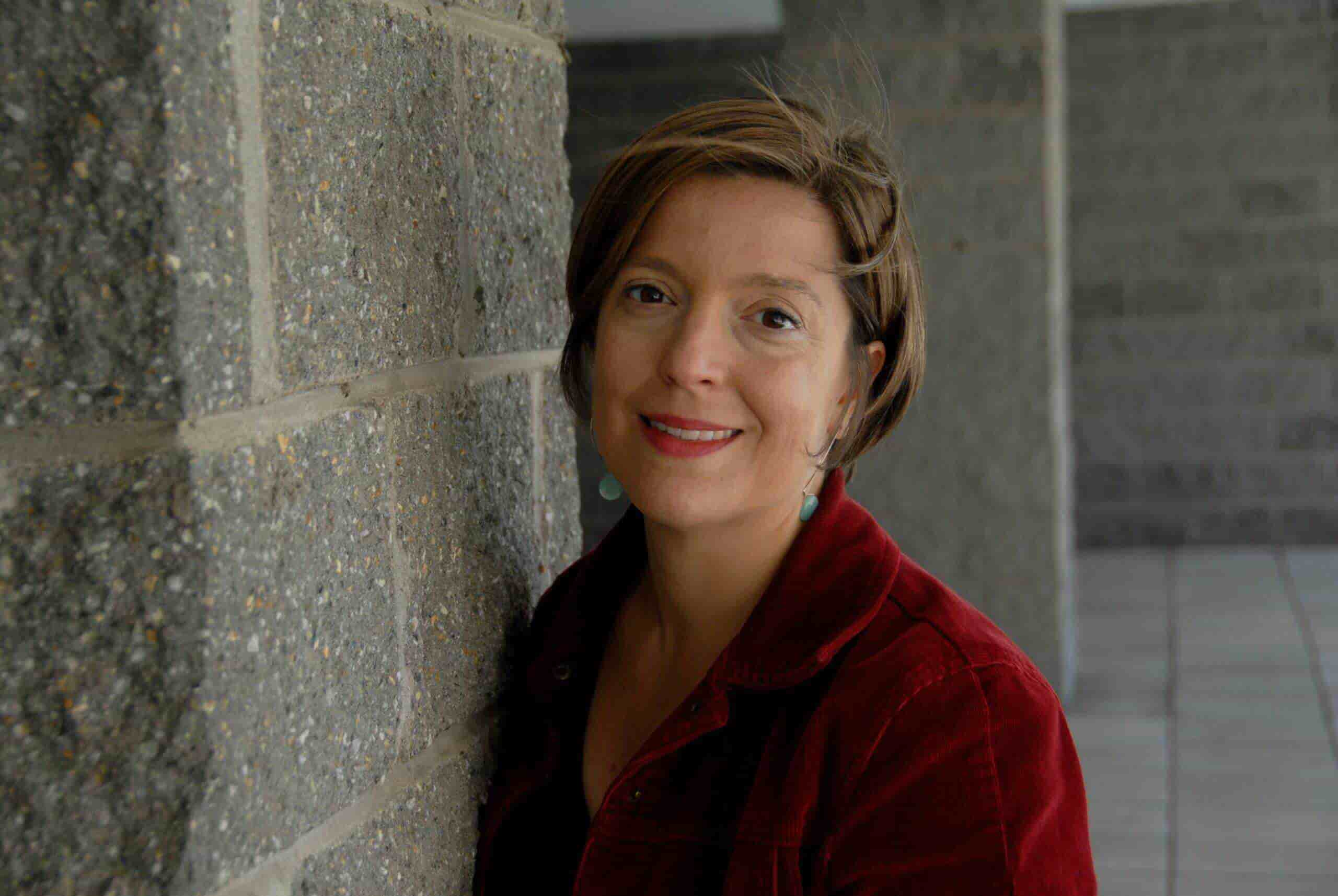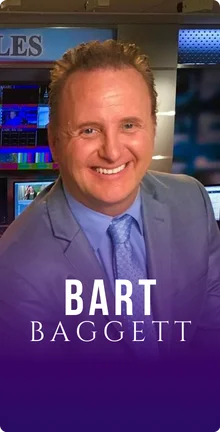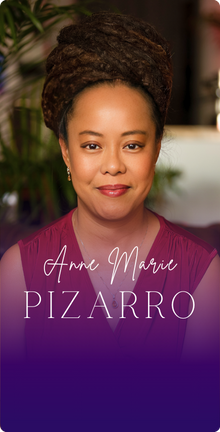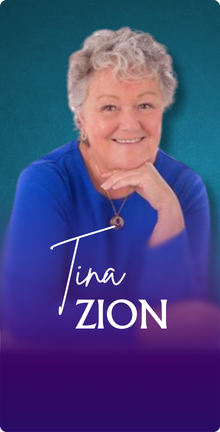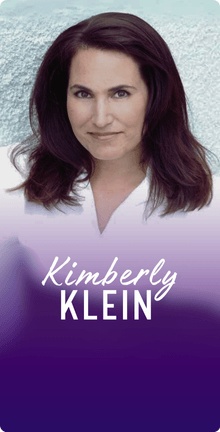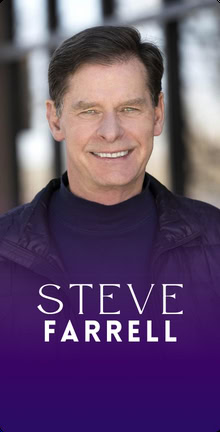In this Episode
- [00:30]Stephan introduces a passionate storyteller, Lisa Papademetriou, the Bookflow founder, author, former editor, and former MFA level writing instructor, as they tackle writing and the ways to stay on track.
- [02:14]Lisa shares her creative spark in writing and storytelling from her childhood.
- [06:09]What qualifies a book to be a New York Times bestseller?
- [09:16]Lisa expands on what Bookflow can offer people, particularly writers, as a crossroads of creativity and productivity.
- [15:19]Stephan is curious about Lisa’s inspiration for the name Bookflow as they discuss the features of Bookflow, such as gamification.
- [21:19]Lisa describes her insights about imagination, inspiration, and intuition.
- [24:40]Both Stephan and Lisa converse about being creative and looking for ways to be creative, which prompts Stephan to speak about shufflemancy and bibliomancy.
- [32:26]Lisa introduces the concept of wyrd and explains fate and the three women who personified it by spinning the threads of human destiny.
- [36:29]According to Stephan, he is experiencing maktub, a term mentioned in The Alchemist. He also shares his knowledge of Kabbalah.
- [43:07]What is a part of our main creative work?
- [45:20]Stephan explains Akashic Records and mentions Anne Marie Pizarro and Christina Cross.
- [51:03]What is Lisa’s last nugget of wisdom for the audience?
- [53:52]Bookflow also provides study groups; for more information, visit their Facebook page at https://www.facebook.com/bookflowinspo.
- [54:20]Sign up for Bookflow and enter the discount code for Get Yourself Optimized listeners.
Thank you, Lisa, for joining us today.
Thank you so much for having me, Stephan. It’s a real pleasure to be here.
First of all, I’d love to hear what got you into writing, because this wasn’t just a passing fad. You wrote over 20 novels. Clearly, this is something that speaks to you and speaks through you. How did you end up getting into writing? And why continue?
When I was young, I would actually not write stories. I would sit in my room and draw maps of imaginary countries and fill them with the fantasy type of people that live in fantasy stories.
I do believe that all of us have that creative spark in us for something. For me, writing was the thing early on. Actually, even more than writing, it was storytelling. When I was young, I would actually not write stories. I would sit in my room and draw maps of imaginary countries and fill them with the fantasy type of people that live in fantasy stories, those books that you have a map in the front of. That was where I got my imaginative start.
The funny thing about telling grownups when you’re a kid that you want to be a writer is that they almost always try to talk you out of it. They say it’s not practical, you’ll never make any money, so I decided that I would go into the editing side. I would go into the publishing side. I did that for several years.
What I learned as an editor is that these authors that we put on pedestals and assume that they just write these beautiful novels as they sit alone in their garret or whatever, are actually engaged in a creative process that can be really messy. Even people who are experts and masters of the craft, they don’t always see their way into their own story. The role of the editor is to help someone bring that story forward and to help formalize their thinking.
When I got my first book contract, I had actually already been writing as a freelancer for a long time. I decided I wanted to write my first novel from beginning to end. I sold it based on a few sample chapters because I sold it to someone who I had worked for before as a freelancer. She knew that I could produce a novel.
The minute I had the contract, I panicked. I thought, what am I doing? I can’t write an original novel. I don’t know how to do this with my name on it. I called her up and I said, “ah, I don’t know how to begin.” She said, “Lisa, you are already an editor, you know how to take a messy manuscript that needs work and turn it into something publishable.
Your first and only task right now is to write a messy manuscript. Just write something bad and then you can go back and make it better.” It was so liberating to hear that. Of course, that is the first job of anyone who wants to write, do anything creative, even get into business, or just do anything where you are building something from scratch.
How do you take a manuscript that you think is solid, like really good, and turn it into something that is of the quality that it deserves to be a New York Times bestseller?
I’m actually at that point myself. I have a manuscript. It’s my first self-help book. I have not secured a publisher yet. I would like to get Hay House, St. Martin’s Press, New World, or one of these more woo-woo type publishing houses to publish it.
I do believe that all of us have that creative spark in us for something. For me, it was writing and storytelling. Share on XThe book is called Living In a Friendly Universe: The Skeptics Guide To the Unseen World. It’s good. It’s really good, but it is not of the caliber of a number one New York Times bestseller, and I want it to be. I would like the status of a New York Times bestseller, sure, but that’s not what this is about.
It’s not an ego thing. It’s like, I want to get this book into as many hands as possible and change lives with it. In order to do that, the quality needs to be just top notch, top tier. What’s the secret to that?
Of course, if we all knew the secret to what would make the perfect book or the ideal New York Times best seller, there would be a lot more best sellers. I guess that by definition, there are only 10 books on that list at any given week in any given genre. Part of that is going to be not just about the caliber of your writing, which of course, is always important. That’s the piece that you actually have control over.
To a certain extent, it’s also about making sure that you are speaking directly to the market that you think is going to be the most receptive to your book. It’s about reaching the right people, not only as many people as possible, but as many of the right people who are going to receive your message. I would say that as you look over your writing, the thing to check on every page as you imagine your ideal reader, does this speak to them in a way that they can hear?

Of course, there are a million ways to write a wonderful book. I personally am a huge fan of the complex syntax and fluid prose of the Victorian writers, but I don’t write that. Although I love to read it, I know that my readers are not looking for that, either. There’s the excellent caliber, but there’s also just the appropriate tone and content. That is really more than anything what you need to focus on as you go through.
I would say the other piece that’s really the simplest thing, the simplest piece of advice that I can give to any writer, is to just look out for redundancies, things that you’re saying that you’ve said before in a similar way. Obviously, sometimes it takes more than one example to make a point, so don’t feel self conscious about including different examples. I know with nonfiction, there are some pieces of nonfiction that really feel like, this is maybe a little repetitive and tightening the prose.
I don’t think people mind having a short book. There are certain kinds of readers that will love a long book, fantasy readers come to mind. But when it comes to nonfiction, if you can hold the reader’s attention from beginning to end in a single sitting or in a couple of sittings, then you’ve really done your job.
Got you. How does a tool like Bookflow figure into the equation to help you to eliminate redundancies, to take that reader on the journey so that they’re following the story arc, the hero’s journey with you, and I’m rooting for you along the way, so they’re not getting lost or bored? How does Bookflow or even similar tools, if there are any, do that for you?
It is so easy to get carried away by a desire to be productive that you forget what a pleasure it is to be creative. Share on XThere are a few things that Bookflow does in a few different ways. It’s really built out with the idea that it’s for people who are engaged in creative writing, like novel writing or memoir building. I do know people who use it for nonfiction or even poetry collections.
What it does that I think is extremely helpful is that as you enter a project, there are three separate places for you to consider different elements of your project. A lot of people assume that writers just jump into writing chapter one, scene one, it was a dark and stormy night. That is, honestly, when I’ve taught writing, what my students expect themselves to be able to do. But I have discovered that there is actually no way to short circuit the process of really developing the background material, and this is what really applies to nonfiction as well.
For a novel, the ideal thing is to have an outline. I think the same goes for nonfiction. One of the things that Bookflow does is that when you are in the project space, it does not force you to write an outline, but it encourages you to write an outline. It encourages you to write a brief description of the scene that you will be creating. That scene could also just be a chapter or a section for nonfiction.
Once you have developed that description of the scene, you are able to drag and drop it into a new order. That scene description appears right next to the scene that you’re writing. It appears on a post-it note page, where all of your scene descriptions are. You can put them in a new order, but it’s also tied to the actual writing that you’re doing, so that if you move your post-it note, you move the whole scene along with it, so that if you decide that you want to reflow a number of sections in your work, it’s very, very easy to visualize and do quickly.
In the places that I knew that I would have to write a new scene, I just simply wrote the description of what the scene that I needed to write in the future would be.
This actually came to my rescue recently. I just had a novel for young readers published this past month. The editor had asked me to cut an entire subplot. I went back into Bookflow. I pulled out all of the scenes that were in that subplot, and I dragged them all to the bottom of the project so that they were all out of my way.
In the places that I knew that I would have to write a new scene, I just simply wrote the description of what the scene that I needed to write in the future would be, and I dropped that into place. Then I could very quickly see where I needed to go in, and write the new scene, and get the whole thing to flow. That is a really helpful thing.
The other thing that Bookflow offers, and this is where it’s really built out for people who are working on creative writing, is that it describes what needs to happen in a scene. When I was teaching in a master’s program, I discovered I had so many master’s level students who were terrific writers, but they did not have a sense of what made a scene flow structurally.
There are checklists on Bookflow to see, have I accomplished this? Can I read that against what I’m hoping to accomplish? There’s also information on what makes a good story, what makes a compelling character. There’s a section to build out your characters with questions and information for doing that.
Again, if you want to understand motivations, you need to understand your characters, so that section is really helpful. Also, for memoirists, that’s very, very helpful for them to understand other people and why they made the choices that they did in their own work. There’s a section for building out your themes and marketing ideas. All of that is contained in a single project.
It also gives you plenty of data so that you can see right where you are. If you set a goal, how close you are to your goal. It gives you little rewards. If you write a certain way into your goal, you’ll get a little good job, keep going star. And there are creative writing exercises every single day on the tool.
Part of writing a story is not just sitting down and grinding it out, but you have to be engaged with new ideas on a regular basis. Think beyond just your project. A writing project is almost like a bird’s nest. You are gathering pieces from many different places to weave them into something holistic. That’s what that tool does on a feature level.
Wow, that’s so cool. How could anybody write a book with just Microsoft Word?
Honestly, I did it for many, many years of my career. What ended up happening is that I had so many files of different bits and pieces, and no good place to put them, and it was hard.

Bookflow was the intersection of creativity and productivity. It is so easy to get carried away by a desire to be productive that we forget what a pleasure it is to be creative. The times where you are in that flow state, and you’re doing both, and you’re being both creative and productive, are the most satisfying. You don’t want to ever get into a state where you’re only being creative but not productive, or only being productive and not creative.
Did you name Bookflow after being in flow, like a flow state where you’re in primarily alpha brainwave state instead of beta?
Absolutely. That was the idea. It’s the fluidity of the words and the idea that we should just be able to be in that fluid state as much as we’ll allow ourselves is why I came up with that idea. I also love the idea of the stories that we tell being these boats that we release into the ocean and just in search of. I guess they’re like messages in the bottle, in search of the reader who will receive that message and take something from it. There were all kinds of water images, but also the Csikszentmihalyi flow energy as well.
That’s awesome. Do you have any competitors to Bookflow? I’m thinking maybe Scrivener might be a competitor, but I don’t know the tool that well.
Scrivener is a terrific tool that a lot of people are crazy about. I find that people who are crazy about Scrivener, they will not entertain the idea of switching, and that’s great. But a lot of people find that Scrivener has tremendous functionality, but it can be a little bit challenging to use.
Bookflow is great for people who have a definite project in mind, but also people who just want to try to write every day.
I think that there are different tools that support different parts of the writing process. For some people, Scrivener is the perfect thing. For some people, I think Bookflow is going to speak a little bit more to their state of mind. Yeah, there are definitely some competitors in this space.
I feel like Scrivener is really terrific for people who have a definite project in mind. I feel like Bookflow is great for people who have a definite project in mind, but also people who just want to try to write every day, and want to have something like creative writing prompts to use every single day, and something new to collect for their bird’s nest.
Would you say that Bookflow has gamification that Scrivener doesn’t have?
Yes. Honestly, I despise talking about Scrivener too much because I don’t use the tool. I did try it several years ago, so I don’t know what they’ve added. I would say that I do know that we do have a certain level of gamification. Every time you come in and even if you write a single word, you’re going to get a reward, a gold star for the day, and you’ll get a certain number of gold stars for the week. As you write your novel, as I said, you can set a goal, you can see how far along you are, and there are rewards depending on how far along you get.
As you write your novel, you can set a goal, you can see how far along you are, and the rewards depend on how far along you get.
We have tied those rewards to the length of certain famous novels. If you write something like 39,720 words, you’ll get a reward saying like, oh, terrific, that’s the same length as The Old Man and the Sea. That is an incorrect example, by the way. I’d have to look up, but that is the reward that you get.
It’s an unexpected reward. You don’t really know when you’ll write your way into another one of these, like the length of a famous novel, but it’s a fun thing to get. Just think about all of these other writers who have come along throughout history and who were constantly in dialogue with, even in the present day.
Yeah, that’s fun. If somebody is looking for a tool to collect information, those strands and things to build the bird’s nest, I’ve heard good things about another tool called Roam Research. I’ve not used it myself. Are you familiar with that one?
I am not, but that sounds like the thing that could probably be used in concert with Bookflow really well. Bookflow is about giving people the opportunity to engage with their own thoughts in a more structured way. You have to have input in order to have output. Right now in the world that we’ve got today, we have so many inputs that are frustrating or stimulate our negative anger response or fear response.
I think that if we can put our minds on constructing something positive, communicating something that’s important to us, or even just building a piece of an imaginative world, imagining a scene or doing research on whatever subject delights our mind, these are really positive inputs that yield positive outputs.
We’re not just responding to the negative stimuli that we can find ourselves surrounded by, where we’re reacting to positive stimuli. Not only that, we’re putting ourselves into the world to find that positive stimuli. That’s a way of reclaiming power and really putting it in our own mind.

As we analyze it in our own minds, as we work with it on the page, we formalize our thinking, we analyze our own thoughts and say, you know what? Actually, I’m going to delete this. I don’t even agree with myself here. Our thoughts get stronger and stronger. Actually, as you write, your memory becomes stronger and stronger. Your ability to imagine and think creatively outside of the box also becomes stronger and stronger.
Let’s actually talk a little bit about the differences between imagination, inspiration, and intuition. I think they’re very different, and I’d love to hear your take on that.
Oh, yeah, sure. I’d love to hear your take on it too. Inspiration is, to me, the least of those three goddesses you named, because we cannot count on inspiration. I feel like inspiration often arrives when I have put aside the desire for her to arrive and simply gotten to work. It is in the work that inspiration comes.
The funny thing is that as I’m in the middle of a piece of writing of any kind, as I’m thinking about it, it’s almost like the things around me will conspire to reveal new thoughts and ideas. That’s just because, of course, as something is on your mind, you see it reflected in the world around you.
It is in the work that inspiration comes.
It’s hard to wait. It doesn’t make sense to wait for inspiration or inspiration waits for you, I suppose. Inspiration, imagination, is the thing that we are all born with. We almost can’t help imagining new ways of using things, new ways of doing things. What if we could do this? What if we could do that?
I spent a day with a bunch of preschoolers recently. I was going to ask them about how to be creative. But the funny thing was, they didn’t even know what I meant when I asked that. I wasn’t expecting them to, but as I sat down to eat the snack with them, they were given some Cheerios and the little kids started.
One of them licked his finger, the Cheerios stuck to it, and then he licked his thumb. The Cheerios stuck to that, and then he started stacking them up, and they were just being creative then they all started doing it. They were just being creative with the materials given to them, which were just a bunch of Cheerios. That was a way to use imagination.
I suppose that overlaps with creativity, which is what you were talking about. Those two things are interlinked because you cannot exercise your imagination without being creative. I also believe that creativity is really about the medium you choose to build whatever it is that you think up in your mind.
There are so many ways to be creative. There are visual arts, there are blogs, there are just even human interactions with other people, there’s parenting. You can have just a creative conversation. I do feel like we live in a world that’s always pushing toward creation. From the moment of the Big Bang to now, we’re all engaged in a project of creative existence.
You can either spend your time exercising that energy or you can not exercise it. I think that that often leads people to feeling a little stuck and frustrated. It’s better to just take the time to build something that you’re interested in. Even if it’s only for you alone, it’s going to pay off in an increase in energy, creative thinking, and other aspects of your life.

For sure. Part of our job here on this planet, I think, is to create. Either you’re growing or you’re dying. That’s what Tony Robbins says, something along those lines. I agree. If you’re sitting on the couch just passively consuming maybe the latest next Netflix series or whatever, you’re not creating, you’re just sucking the life out of everybody else and sucking the energy out of the room. Look for ways to create.
Absolutely. I think that you can even probably watch Netflix with an eye toward being creative. Of course, those things are all stories in and of themselves. There’s a way to watch it that’s completely passive and that is ultimately not going to do anything for you. But there is definitely a way to engage with that visual medium and to write about what you think.
I’ve just been watching Dopesick on Hulu, which was such a fascinating portrayal of the opioid crisis. A lot of things that I hadn’t known about the opioid crisis, I became aware of through that, even though a lot of it is fictionalized. I thought a lot about the performances that I saw, and the different kinds of people who were affected, and the way that people have been affected by all kinds of drug crises in the United States.
There is a way to be engaged in this. I’ve had so many fascinating conversations with people about that short series, because I feel like while I was watching it, it engaged me, and it really activated my mind, so that actually did do something for me. I think that you can do it one way or do it another way.
That is such a great point. Really, it comes down to intention. If your intention is to veg out, then you’re not in a creative state, you’re in a consuming state.
Right. At that point, it doesn’t even matter what you consume. You can read the instructions on your shampoo bottle, and you’ll get nothing out of it, and it will give nothing to you.
I remember, one of my coaches mentors is Tina Zion. She was a guest on this podcast. She’s a famous medical intuitive and Reiki master. She was watching a show that actually ended up being pretty dark. She turned it off at one point where it’s like, yeah, this isn’t very good for me. But there was one line that just jumped out at her. I think there were demons or some entities in the show.
One of the protagonists yelled at one of these entities, I have no more fear to feed you. That just leapt off of the screen to her and she’s like, there’s the message. That’s why I wasted time watching this stupid show was for that. so that I can tell my clients that line. It’s so important and it made a difference for the people that she’s shared it with. There are so many occurrences of that happening if you’re open and receptive to receiving messages like that.
There’s a term, actually, I learned recently called shufflemancy, which is similar to bibliomancy. Bibliomancy being you open up a book with intention. Right at the spot you open it is exactly the message you need to read. That’s not random.
A writing project is like a bird's nest. You are gathering pieces from many places to weave them into something holistic. Share on XThat really works, so does shufflemancy, which is a cousin to that, where you’re hopping onto your computer, maybe visiting the homepage of YouTube or you’re on some video page on YouTube, but you see the suggested videos over on the right hand side, or you’re scrolling through your Facebook or your Twitter feed and there it is, exactly the thing that you needed to see, to watch, or read. It’s right there in front of you.
It’s not because of an algorithm. The surface level, yes, it’s because of an algorithm. But the algorithms and our whole experience of life, this whole simulation, is controlled by the angels and by God. If you’re receptive to that, then more of this can happen, more of this shufflemancy. You can be receiving it during a Netflix binge. I got a few examples I’ll share with you in a minute, but I’m curious what your take is on what I just said.
Oh, my goodness. I have so many thoughts. I think that that makes perfect sense. It of course agrees with or reinforces some of these ancient traditions of tarot cards or of astrology, where it is really a guided intuition.
Carl Jung talks about how archetypes are really stored in the collective unconscious. These are ways that people for millennia have been in touch with different aspects of their own selves. You think about this demon archetype of the shadow, the dark side. Yeah, that is fed by fear and it lives in all of us. We all can identify with how our fears make those demons grow more powerful, not necessarily in a literal way. Figuratively, it’s very true.
These are the tools that exist in the wisdom traditions and have existed for a really long time. It’s not surprising for me to think that people would be using technology to do that just in the way one would do it in 2022. These traditions continue and they evolve. I’m really intrigued by that whole idea. It makes me want to go to YouTube and try some shufflemancy and see what I come up with.
Totally. It just occurred to me that you could bake this into Bookflow.
Actually, that is so interesting you would say that. I could, and I do feel that our daily writing exercise is a piece of that. People have often written to me to say, “this is exactly what I needed to hear today because it’s often a quote,” or “it’s an imaginative scenario,” or “it’s just a visual image.” But I also think that I’m also going to be teaching a workshop on archetypes for whale rock workshops just coming up, the next one.
It’s almost amazing that you brought this up in this conversation, which I wasn’t even planning on talking about archetypes at all. Just thinking about how these different energies play out and how we receive them as we read or how we employ them as we write can be a really, really useful intentional exercise. We have a little shufflemancy right here.
That’s amazing, yup. Even with Carl Jung and archetypes, I just learned last year that I was—what’s the thing on Reddit—’I was today years old.’ Synchronicity was actually coined by Carl Jung. He’s the one who did all the research on it and created a whole book about it.
Creativity is about the medium you choose to build whatever you think up in your mind. Share on XOh, my goodness. I actually didn’t even know that, so that’s fascinating. Wow. All right, I’ll have to look into that some more. As I was researching my MFA, I was writing about concepts of fate and how basically most of the project in traditional western literature is an attempt to understand our own role in terms of fate.
The end in the western idea is based on the concept of wyrd. That has an element of self-becoming, like who am I becoming as I make choices toward my own fate? There is an element of self-efficacy there. But as I was looking into that, I learned that the word wyrd is based on that word, word, and that it was first employed by Shakespeare in Macbeth. In the weird sisters, who are the embodiment of the past, present, and future, the three sisters, the fates.
Interesting. For somebody who’s listening not familiar with those sisters, can you elaborate on it?
You might remember a bubble, bubble, toil, and trouble, so the introduction. The three sisters are supposed to be based on the ancient Greek, Moirai, who were the sisters who were the fates, representing past, present, and future. In the Greek tradition, they were weavers. One would spin the thread of life, one would weave it, and one would cut.
In Macbeth, they meet Macbeth just as he’s becoming Thane of Cawdor, I believe. It’s the very beginning of the story. The tension in Macbeth is really all about, was this foretold by them, and he’s merely living out the fate set by them? Or did the fact that they gave him the prediction of his future make him start to enact it?
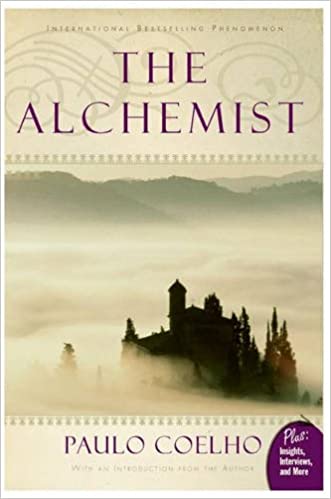
He already was someone who was ambitious, but not that ambitious. He was already brave. He was already a warrior. But as the story progresses, he becomes more and more of his own darkest self as he makes choices that reinforce the predictions, because he knows what the predictions are. In fact, he even says, maybe I don’t need to make this choice. Maybe it’ll just happen, but ultimately, he does start making these choices.
That’s really what the story is all about. Who has control of our fate? Do the fates have control of fate? Do we have control of our fate? And I think the answer is really, yes, exterior circumstances happen and we react. Also, we make choices and then exterior circumstances happen.
We’re always in dialogue with our own process of becoming the self that we build brick by brick. For Macbeth, it’s a tragedy. But for other people, they start off flawed, and they end up becoming much, much better. These are the choices that we make.
I feel the latter is what’s happening with me.
That’s what we hope for. That’s right. Just as you were saying earlier in the podcast, you can be getting better or you can be getting worse. Again, sometimes it’s hard to make these life supporting choices. I don’t always feel like writing every day. Let me tell you that when I take several days and I’m not writing, I’m not a happy person. I need to be doing that creative work to be in my best place. I think most people feel that way about whatever it is that feeds them.
You know, what’s happening to me that I’m curious to hear what your thoughts are, I’m noticing that a lot of my day, even though it feels like I’m making choices, I have this awareness that it’s already written. If you’re familiar with the book, The Alchemist.
Oh, yes. It’s been a long time since I’ve read it, but yes.
In that book, you have maktub. It’s Arabic for it is written. It’s in the Quran. It’s actually a very profound and important concept for us to understand. If everything is written including the fact that I’m bringing up The Alchemist right now and that we’re talking about the fates and all this stuff, it’s all written.
For example, I’ll just glance at the clock at exactly the moment that shows me it’s eleven eleven. That, I know, is a sign that that’s a message for me, that that’s an angel number. It wasn’t meant for me to notice it at eleven twelve or eleven ten, but eleven eleven. I’ll glance at something like a street sign. These things just seemed in the past to be so random, I get the sense that this is already written.
I was supposed to catch a glimpse of that one thing in the corner of my eye. For example, the other day, I said a prayer for the stray cat that I had saved in Israel a little over a year ago now. I was sensing that she was in trouble. She ended up in a nice home, thankfully. After I saved her, she had a broken pelvis and dislocated foot.
I knew something was wrong. I visit her every week when we go to this energy healer, network spinal analysis. It was amazing. Every time we went and visited his offices while my wife was getting her entrainment, I’d take my two-year-old and we would go and visit this one stray cat.
I brought food for it every week. And this one week, it was not well. There was something wrong with it, because I had learned how to open my Akashic records just recently that month. I opened my records and I asked what to do. I was instructed to take it to the vet. Good thing, because she would not have made it. She was severely dehydrated. With a broken pelvis, it couldn’t really move.
Writing and language are how we create ourselves. It is how we understand ourselves in the world in our own thoughts and how we're in dialogue with the past. Share on XThat was beautiful and amazing. When I connected with her the other day, I felt like she was on the precipice. This is a year later now, and I hadn’t been in contact with the lady that took her in for months and months. That’s probably been at least six months, but I felt like she’s skating on the edge of life and death. I contacted the lady. She said, yeah, she’s had three epileptic seizures in the last week.
Anyway, here’s where the synchronicity and the thing it’s written comes in. I say these prayers to assist with this cat and then I finish. And I just happen to look down, there’s a book—actually, the irony gets even deeper—about intuition on the nightstand. There, right next to that book, stuck to the nightstand is a little tiny sticker of a cat, one of my son’s stickers because he has lots of stickers.
It’s a cat. I had not remembered that on that nightstand, there was this little cat sticker until that moment, which was right after I said the prayer. I said, oh, okay, this made a difference. I knew that that was a confirmation for me.
It’s interesting. Again, it’s like our intuition is guided by what’s happening. It’s also just so interesting to me to think about the language of it is written, because of course, again for me, writing and language is how we create ourselves. It is how we come to understand ourselves in the world in our own thoughts and how we’re in dialogue with the past.
How much of the world do we create through language? How much of language creates the world?
That’s really why I feel like everyone should write, whether they have the ambition to be a writer or not. It’s just really about formalizing your thinking. I’m always interested when there’s something like, in the beginning, there was the word and it’s like, how much of the world do we create through language? How much of language creates the world? It’s really interesting that it’s even phrased that way.
I do wonder, too, it’s written a bit like choose your own adventure is written. It is written, of course, but there are many, many ways the ending could go, I suppose.
Yes. Even before we started recording, we had a little bit of a conversation. I dropped into the chat to give you a link to an article Tom Kenyon wrote about timelines. This is where my Kabbalah training ties in.
In Kabbalah, I learned that, essentially, everything is written and that free will only exists in the moments in between. Essentially, when you decide to be extra proactive versus your robotic consciousness, you’re being autopilot, how you normally go about your day.
Even if how you normally go about your day is to be kind to homeless people, give them money, and so forth, that’s already written. But when you go the extra mile outside of your comfort zone, that’s where you can get an upgrade to a whole new timeline. Conversely, you get a downgrade to an even worse timeline in which everything else is written if you’re malevolent or just really reactive.
It’s so interesting how so many different traditions have different ways of looking at almost just the reality that we all inhabit, in which it’s possible to just go through your life responding to the stimuli. Part of the main creative work that we do, just being within this world is staying conscious in the moment, being aware of our own thoughts, being aware of what it is that we’re putting into the world and trying to do it as positively as we can.
It’s really fascinating. Let’s circle back to this idea of Netflix binging, because I want to share a couple of examples that were just really pretty notable. One was, I was watching the movie Kardec with my wife, Orion. The movie Kardec is about Allan Kardec, who was the founder of Spiritism back in the 1800s. It’s a fascinating movie; really, really good.
Anyways, there was a point where we stopped the movie to, I don’t know, check on our son or something. We had a conversation that was really deep. I don’t remember the context of it. All I remember was the moment we hit the play button, there was a message. We wouldn’t have known it because it was right after where we paused it.
What we heard right after when we hit play again, after having this whole conversation that was a really deep conversation, and it was exactly the thing that tied in perfectly with what we were talking about. It was so spooky, amazing. That’s another example of shufflemancy.
Exactly. That’s just creative engagement. You were engaged with what the project was trying to say to you and you were in conversation with the work of art, and it spoke back. That’s really interesting.
That’s another thing, too. This is fascinating and I’m so excited to know this. I learned how to open my Akashic records and do Akashic records readings from Anne Marie Pizarro and from Christina Cross.
I learned from both Christina Cross and Anne Marie Pizarro how to open my Akashic records, do readings, and stuff. For others too, but especially for myself because that’s really helpful. You can also open up the records of a work of art, a creative work, like the book I’m writing.
I can talk to the guides and Akashic records keepers for that work and find out what the plan is, and what’s the best most benevolent outcome would be, and how best to support that work in the world so that it makes the maximum amount of impact. Isn’t that cool?
Interesting. I’ve never heard of this before. I’ll be really interested to find out more about it.

Are you familiar with the term Akashic records?
I’m not, so I’m going to google it. That’s the beauty of 2022.
Yeah, of course, everything’s on Google. In this show, there was an episode in December 2020. Anne Marie Pizarro was an amazing Akashic Records reader. That episode is all about Akashic records. Just in short, the idea is that every thought, word, and deed across all lifetimes is recorded. Where is it recorded? In the Akash.
The Akash Sanskrit word means primal substance. We have a record of everything that we’ve ever done, ever thought, across all lifetimes that’s at our disposal, that we have access to. We can open our Akashic records with assistance from our guides, angels, and so forth and ask them for guidance. Ask them for information. We’re not going to get the answer to when you’re going to die. You’re not going to do it like that.
What will I get for Christmas? Right. It’s not that kind of thing. Right, yeah.
Yeah. You can actually get what you’re going to get for Christmas, but when you’re going to die is not an allowed question. You can ask it, but you’re not going to get an answer to it because that changes the whole video game for you, the game of life. It’s not fun if you already know the script to your movie.
Anyway, I’m curious to hear your thoughts on, does everyone have a book in them?
Oh, absolutely. Now, does everyone need to publish that book? No. Everybody has stories to tell, everyone has imagination to engage with, everyone has thoughts to process, and I think that all of that is enough to fill several books for every single one of us. But if your ambition is to write a book, I would say that, then you should because you will only gain by that.
Even if you never find a publisher, the opportunities now for self-publishing are tremendous. Sometimes, people just want to write something to share with their family or with a very specific small audience. It’s always worth doing, because you do not come out with that process the same person who went into the process. You come out of that process someone who has learned a great deal, processed a great deal, and just concentrated on trying to convey thoughts. It is never going to harm you.
Do you know anybody who’s channeled books, they’re basically taking dictation from above?
I always found journaling difficult, because it feels like an expectation that you’ll have something to say every single day.
I have actually felt that way. I know that a lot of the ancient writers felt that way. In fact, that’s what the ancient writers all believed was happening. Your job was to open yourself for the muse, so that the muse could work through you or the gods could work through you. The ancient Greeks did not believe that they were geniuses. They believed that they had the geniuses, and that the genius would work through them from an external source. Their job was to be available.
That’s why so many of these ancient epics begin with an invocation of the muse, like, ‘oh, muse, please bless me with your story.’ I don’t think that taking that dictation feels very different from the state of flow that we were talking about earlier. These might be just different words for the very same thing, where you’re so engaged in the task that it feels as if it is coming from beyond you.
Yeah. I recently learned that The Alchemist was written in 12 days.
Wow, isn’t that amazing?
Yeah. Clearly, that was channeled. He just tapped into the fabric of space-time and pulled that out. Amazing. How many tens or hundreds of millions of copies of that book have been sold?
Right, yes.
I love that book. I just finally listened to the audio book. It’s narrated by Jeremy Irons, the actor. He’s really good.
Wow, that sounds like a great listen.
Yeah. Awesome. What would be your last nugget of wisdom to share with our listener or viewer in terms of taking their life to the next level, whether they want to journal, write a memoir, a nonfiction book, or just sit on the couch? What would be the last nugget for them?
I suppose the last nugget is to be aware of your inputs. I always found journaling difficult, because it feels like an expectation that you’ll have something to say every single day. For a long time, I went about this by just writing down what I had done that day, but that was never very interesting for me. Sometimes, I would just complain about thoughts in my mind.
Lately, I have been writing about things that I’m reading or things that I have seen on Netflix or whatever. That always gives me some material to work with and to draw thoughts from. Whether your project is to write something, whether you’re scratching around for a new project, or whatever it is that you’re doing, just start paying attention to what it is that you are putting into your mind.
Watch your inputs and try to consciously be creative every single day, even if it’s just being creative within the context of your relationships.
I feel like there are so many possible distractions now that it’s very easy to fill up your time with thoughts and fears that don’t give you anything substantive to really work with in a positive way. That’s it. Watch your inputs and try to consciously be creative every single day, even if it’s just being creative within the context of your relationships. Just make sure that you connect with people and appreciate mindfully what’s actually going on in the world around you.
Great advice. I believe you have some study groups or what you call them in Bookflow. I actually attended one or two of these meetups on Zoom. It was like a book discussion thing. In fact, I was just looking up this on Notion. We talked about flow at the beginning. Mihaly Csikszentmihalyi. Is that how you pronounce it?
I have been told that it’s actually pronounced Csikszentmihalyi.
Csikszentmihalyi. Yeah, that sounds perfect.
Yeah. Even though there are lots of other letters that I want to pronounce, I think that’s actually how it’s pronounced.
Yeah. That book by Mihaly is one of the books you guys discussed?
Yeah, we did. We are actually on hiatus right now, but we have had a book club for books on creativity, books on writing, and books on productivity, the three pieces of the clover. That has been just a wonderful thing, because everybody gained some insight from every single title that we read.
That’s cool. Is that just for people who are part of the Bookflow platform?
It has been, yes. As I started up again, I think we’re on hiatus for a couple of months, but we also have a Facebook page. If you join the Bookflow Facebook page, that’s really what it’s through.
Hopefully our listener is going to sign up for Bookflow not just for the study group, but for the tool too.
Yeah. Like I said, I’ve written two novels on it already, and I’m well into the third.
And I believe you have a coupon code or a discount for our listener.
Yeah, we do. It is “optimized25.”
Optimized25. Awesome, and that’s for 15% off the first year.
Yes, that’s right.
Awesome. Thank you again, Lisa. This was a fabulous and inspiring conversation.
Thank you so much. It has really been a pleasure to chat with you.
Likewise. And listener, I hope you take some nugget, some wise advice from this episode and apply it in your life, because this is a world of action, not a world of consumption. We’ll catch you in the next episode. I’m your host, Stephan Spencer, signing off.
Important Links
Connect with Lisa Papademetriou
App/Tool
Book
People
Previous Get Yourself Optimized Episodes


